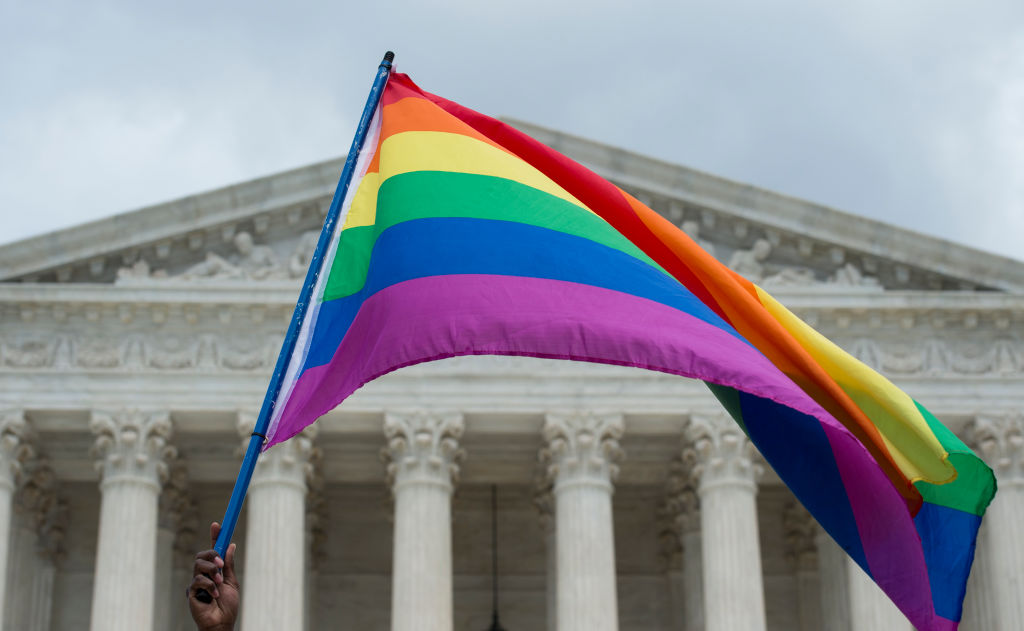A Black transgender woman is suing the Georgia Department of Corrections for the second time for failing to protect her from “brutal and unrelenting” abuse while in custody.
After surviving abuse during her previous incarceration and receiving a historic settlement, Ashley Diamond is suing the Georgia agency again following another sexual assault during a second stint in prison, the Daily News reported.
Diamond first made headlines in 2015 when she worked with the Southern Poverty Law Center to take legal action against the Georgia penal system for the mistreatment she and other transgender inmates faced at the hands of prison staff, according to The New York Times.
While incarcerated, Diamond was housed in male designated areas for more than three years. She was mocked, intimidated, sexually abused and deprived of the female hormones she had made a part of her everyday life. Before Diamond’s release in Sept. 2015, she was in isolation for 30 days in a windowless cell as a means to help protect her.
Eventually, she was released early, awarded a settlement and given a commitment from the agency that it would improve its treatment of transgender people, which include provisions for hormone treatments. Diamond’s case also led the Justice Department to issue a Statement of Interest, detailing how prisons in Georgia were unconstitutional in their treatment of transgender inmates.
Despite results of Diamond’s legal settlement, the state’s prisons have done little to rectify their treatment of the incarcerated transgender community. In October 2019, she was sent back to prison following a parole violation where she said she was abused on 14 separate occasions by both staff and people serving sentences in a men’s facility, according to the Daily News.
Diamond also revealed that prison officials refused to provide her with “constitutionally adequate treatment for gender dysphoria.” The American Psychiatric Association defines gender dysphoria as a serious medical condition that causes mental anguish and can lead to physical injury if not treated.
“Being a woman in a men’s prison is a nightmare. I’ve been stripped of my identity. I never feel safe. Never,” she said. “I experience sexual harassment on a daily basis, and the fear of sexual assault is always a looming thought. I’m bringing this lawsuit to bring about change on behalf of a community that deserves the inherent dignity to simply exist.”
SPLC senior attorney Beth Littrell offered her support to Diamond and said, “unfortunately, we’re having to sue again to end the abhorrent treatment of transgender people, particularly transgender women of color, in Georgia’s prisons.”
The law center said in a statement that the Georgia Department of Corrections is “fully aware of its legal responsibility to properly evaluate, treat, and protect all incarcerated transgender women,” yet it hasn't effectively maintained that duty.
“Five years after changing its policies in response to our first lawsuit, [the department] tragically continues to flout its legal obligations to protect transgender people in its custody. The assaults and threats that Ashley continues to face on a daily basis are based on the fact that she is a woman in a men’s prison — it’s intolerable and inexcusable," the statement read.
As Blavity previously reported, violence against the transgender community is surging. At least 37 transgender people have been killed this year, a number the Human Rights Campaign said was most likely underreported.
With Transgender Day of Remembrance on Friday, advocates of the LGTBQ+ community told Blavity that it's important for allies to consider all the obstacles facing the community.
J. Mase III, an author, educator and theologian, said, “to observe Trans Day of Remembrance, cisgender people can take seriously the financial and housing needs of trans people. They can admit to themselves that they benefit from transphobia," and that it is their duty to work to end it.
